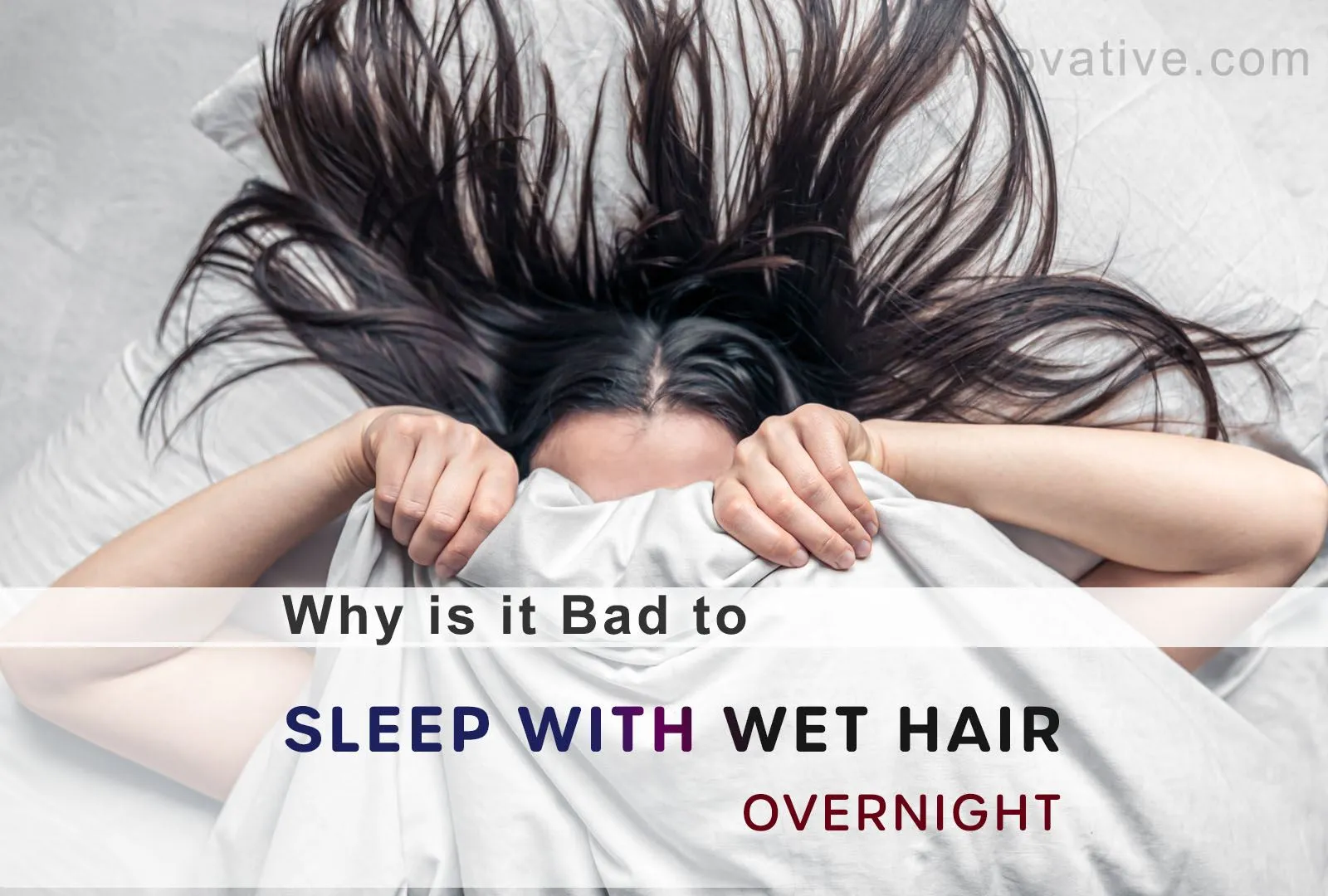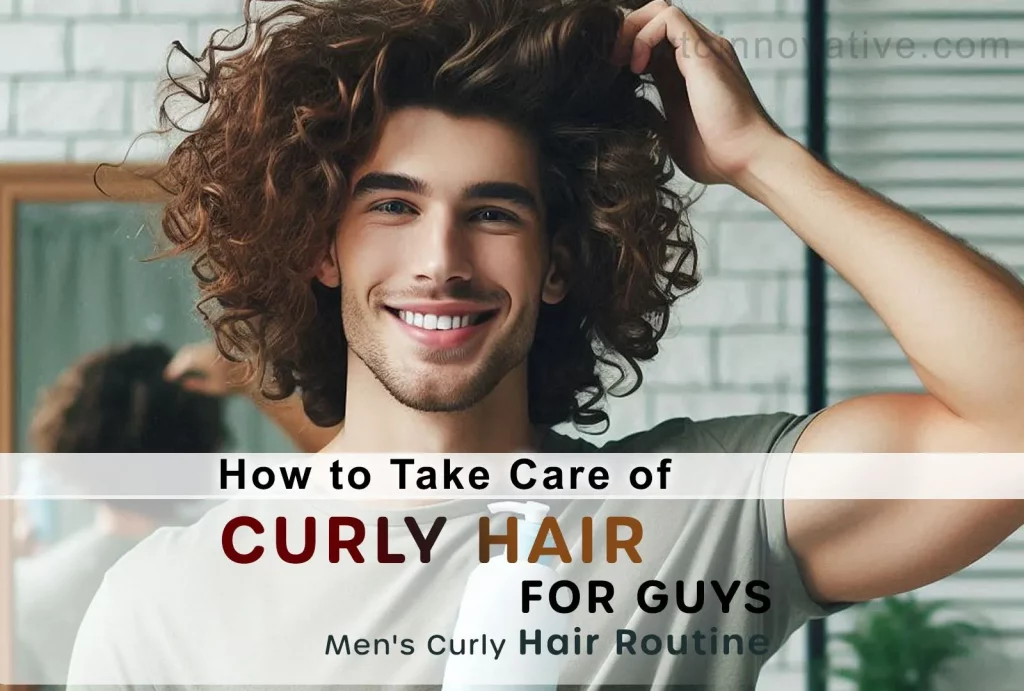Sleeping becomes a very valuable entity during the college years. After a long day at classes, various social activities, and most likely a part-time job, it is quite tempting to just jump into bed after showering with wet hair. But before you do so, consider the risks associated with sleeping with wet hair overnight. While this may seem harmless, there are a few reasons why it is not the best idea for your hair and health.
Table of Contents
Why is it Bad to Sleep with Wet Hair & How to Protect Wet Hair Overnight

1. More Chances of Hair Damage
You can probably get away with sleeping with wet hair once in a while without noticing any extraordinary hair damage but doing so as a rule invites hair damage into your life. Your hair is way more brittle when it’s wet. Hair strands swell when they are wet, and this weakens the structure. Add to that friction from your head rubbing on the pillow, and you’ve got a recipe for split ends and breakage.
Why it happens:
- Wet hair is more easily stretched than dry hair, which puts it at a greater risk for breakage.
- All that turning and tossing may ruffle the hair cuticles because of the friction.
Daily Hair Care Tips:
Use a silk pillowcase. Compared with cotton, silk produces less friction. So less damage will come to your wet hair.
2. Increased Risk of Scalp Issues
Sleeping with wet hair can provide an ideal site where bacteria and fungi find nutrients to multiply. Having a damp scalp really leads to such kinds of problems, like dandruff, itchiness, and even fungal infections. Such states might really be very irritating and at times require special treatment.
Why it happens:
- A moist scalp, coupled with body heat, sets up an ideal breeding ground for bacteria and other fungi.
- Second, it can upset the balance of natural flora on your scalp and will begin to be a factor in causing dandruff and other such problems.
Daily Hair Care Tips:
To reduce the risk, go to bed after gently patting your hair dry with a microfiber towel. Microfiber towels have the capacity to absorb more water without roughing up the cuticles of the hair.
3. It Disturbs the Sleeping Conditions
You will feel cold and miserable all through the night when you sleep with wet hair. Other than making you sleep uncomfortably, this may make you sick as well. Cold, damp hair brings down your body temperature so that you can be restlessly tossing all through the night, or at worst, catch a cold.
Why it happens:
- Wet hair lowers your body temperature, especially when you sleep in a cold room.
- This may further make your pillow cold and uncomfortable, thus affecting your sleep even more.
Daily Hair Care Tips:
Whenever you need to sleep with wet hair, wear a shower cap. This will trap some of the moisture along with warmth. However, do not over-tighten it since it may lead to other problems like scalp irritation.
4. Hair Shape Distortion
Another common problem is waking up with your hair in weird shapes or creases. Hair tends to take the shape of however it has been pressed against a pillow while drying at night. This can leave you waking up with kinks, waves, or flat spots that are hard to manage in the morning.
Why it happens:
- Well, hair dries in the shape it is in, so sleeping on wet hair can make it dry in an unflattering or awkward shape. It will leave you spending more time on your hair each morning.
Daily Hair Care Tips:
If your hair is a little damp before bed, it is good to braid it loosely. This will help to control the shape as it dries and can even give you natural waves.
5. Increased Risk of Allergies and Asthma
If you have allergies or asthma, wet hair sleeping will only exacerbate your conditions. The water will create a perfect environment in which dust mites and mold thrive in your bed. These allergens, in turn, lead to allergies in the form of simple sneezing or coughing, or even triggering an asthma attack during sleep.
Why it happens:
- A damp pillow and bed linens can foster perfect breeding conditions for dust mites and mold.
- It is quite a problem for people who suffer from respiratory diseases or those who are allergic to these little creatures.
Daily Hair Care Tips:
Wash your pillowcases and sheets every week in hot water to kill off dust mites or mold spores that might have collected.
6. Headache when Sleeping with Wet Hair
Waking up, in general, with a headache because you sleep with wet hair is not all about coincidence. Wet hair lowers your body temperature, which can then cause you to wake up with a headache. If the head is not completely dry and the room is somewhat cool, the combination of both may trigger tension headaches.
Why it happens:
- The drop in temperature due to wet hair triggers blood vessels to constrict and results in a headache.
- This may also ache your neck, which again is the cause of headaches, by sleeping in an uncomfortable position to avoid wetting your pillow.
Daily Hair Care Tips:
If you are a regular sufferer of headaches, take a heated towel and use it for a few minutes before going to bed to easily dry your hair. This could help in keeping the scalp warm and decrease the chances of waking up with a headache.
7. Stuffy Nose or Cold Risk
While it sounds like an old wives’ tale, sleeping with wet hair really can raise the propensity for you to get a cold or a stuffy nose. The reason is not due to some virulent factors of the hair itself. In fact, when you go to bed with damp hair and the ambient temperature is low, it knocks down your defenses, making it easier for viruses to take hold.
Why it happens:
- Your immune system is depressed when you become too cold and damp for too long.
- This lowered immune response makes you more prone to catching a cold.
Daily Hair Care Tips:
Use a hairdryer in a cool setting to dry most of the moisture before bed. This will minimize heat damage, but you can be sure that your hair isn’t soaking wet when you sleep.

Conclusion: Drying Hair before Sleeping
Although one may find it convenient to go to bed with wet hair, the risks involved are much higher in number. From damaged hair and troublesome scalps to serious health issues, sleeping with wet hair can cause quite a few problems, but easily preventable. Take some extra minutes at the start to dry your hair before bed, or at least reduce the moisture as much as possible. Your hair, scalp, and health will thank you.
Final Thoughts
Always remember these tips as you go to bed with wet hair. With a little care and attention, you can enjoy both healthy beautiful hair and a good night’s sleep.







